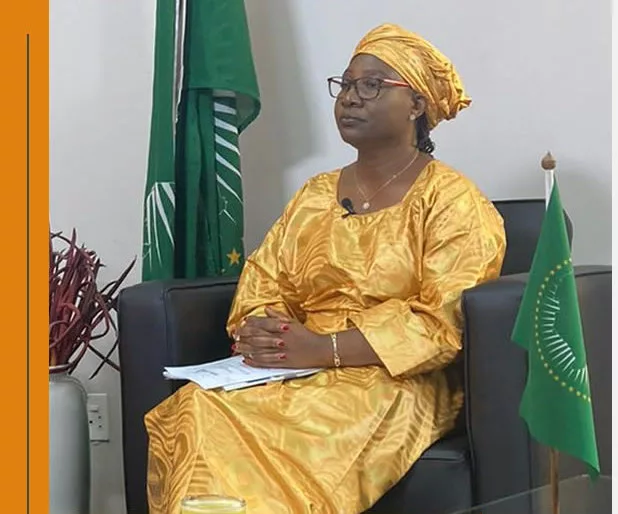|
Getting your Trinity Audio player ready...
|
A validation workshop bringing together members and key stakeholders of the Post Malabo Technical Working Groups (TWGs) convened/co-convened by the African Union Development Agency (AUDA-NEPAD) and other partners kicks off today 25 July 2024 and will run until 30 July 2024 and is meant to review, revise, refine, and finalize the draft reports to be submitted to the Post Malabo Technical Coordinating Committee.
Speaking ahead of the workshop, Mrs. Estherine Lisinge-Fotabong, the Director of Agriculture, Food Security and Environmental Sustainability of AUDA-NEPAD said the technical working groups include TWG 4: Emerging Technologies – Biotechnology, Artificial Intelligence, and Productivity growth; TWG 7: Enhancing Resilience of Livelihoods and Agri-food Systems to Shocks; TWG 9: Inclusivity and Equality in Agri-food Systems (Youth and Gender); TWG 11: Implementation and Coordination Capacity (Delivery mechanisms); and TWG 13: CAADP BR Data Management and Mutual Accountability.
She underscored the important role that the Comprehensive Africa Agriculture Development Programme (CAADP) has been playing as Africa’s policy framework on agricultural transformation, wealth creation, food security and nutrition, economic growth, and prosperity for all.
“Led by the African Union Commission (AUC), the African Union Development Agency (AUDA-NEPAD), and Regional Economic Communities (RECs) in support of member states, CAADP Malabo has championed agriculture-led development. This encompasses the elimination of hunger, reduction of poverty and food insecurity, and enabling expansion for exports and higher economic growth within an overall strategy of sustainable development and natural resource conservation.
“With the Malabo Declaration concluding in 2024, it is important that the AU-led process to outline the next 10-year agricultural agenda for the continent remains inclusive and backed by evidence and experience from practice and research. The 37th Ordinary Session of the AU Assembly held in February 2024 also noted that despite significant progress, the continent’s ambitions and aspirations under the Maputo and Malabo agendas have not been met. The Heads of State reiterated the need to retain the strengths of the CAADP agenda while adjusting and deepening it to respond to emerging issues – such as climate change, conflicts, and economic shocks. They recognized the importance of developing the successor 10-year CAADP implementation plan before the expiry of the Malabo CAADP declaration. In its declaration, the Assembly decided to hold a Special Summit in January 2025 in Kampala, Uganda to consider a new 10-year postMalabo CAADP implementation plan,” she said.
Following its endorsement by the AU Assembly, the Post Malabo Roadmap was launched by the AUDA-NEPAD and the AUC on the 8th of March. The launch included the announcement of the governance structures of the post-Malabo process, including the Steering Committee Members, the Coordinating Committee, and the technical working groups that will lead analytical studies in the various thematic areas.
At the launch, various parallel activities were also announced as per the roadmap including stakeholder consultations and research and technical analysis by working groups to gather inputs into the drafting of the Post Malabo Agenda.
Participants in the validation workshop in Lusaka are drawn from selected institutions and think tanks that have been focusing on CAADP implementation and African agri-food systems transformation for the past 20 years.






